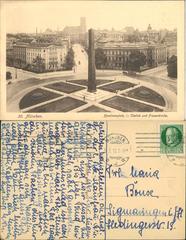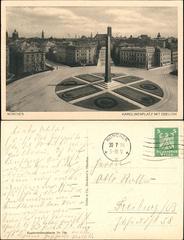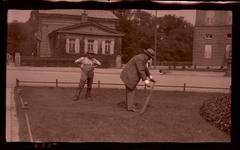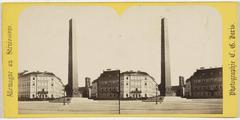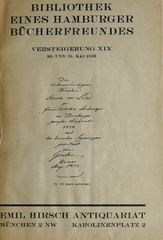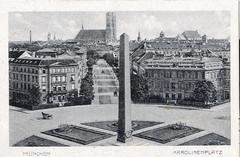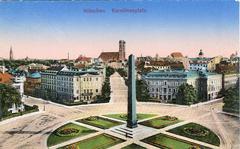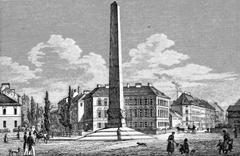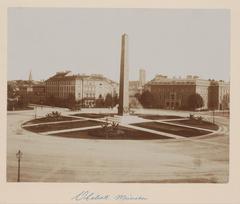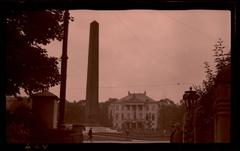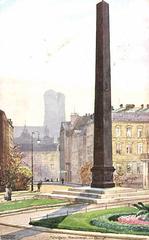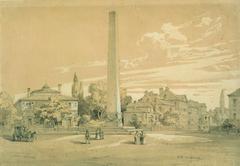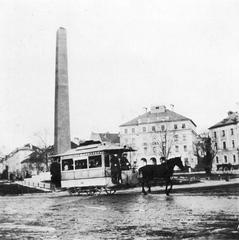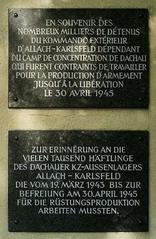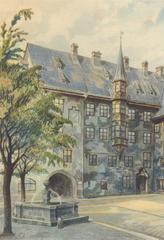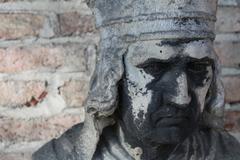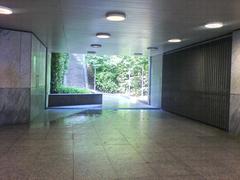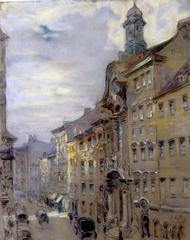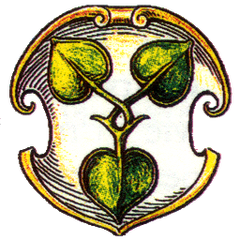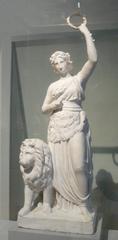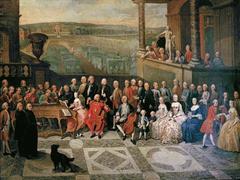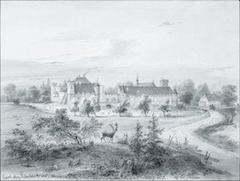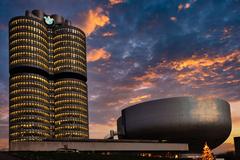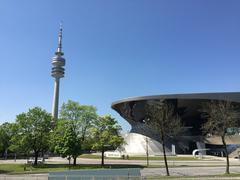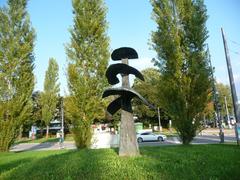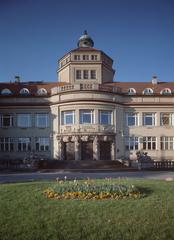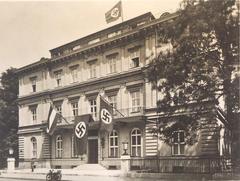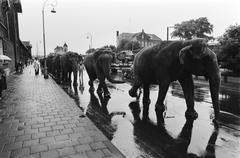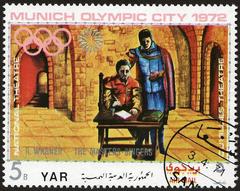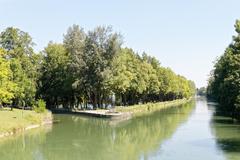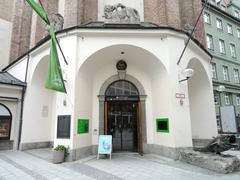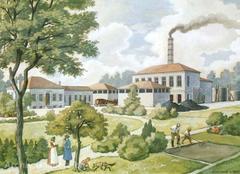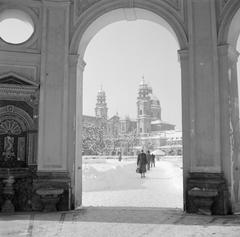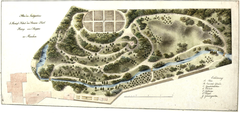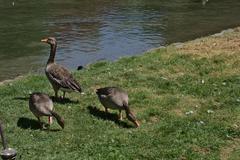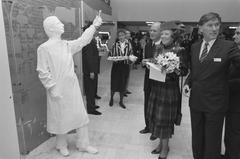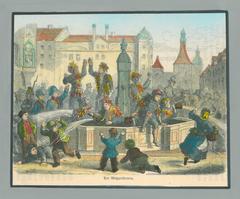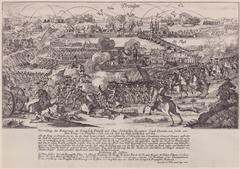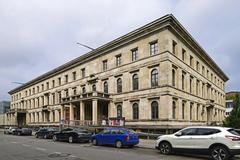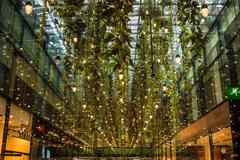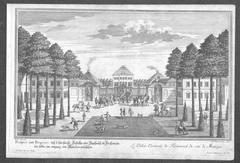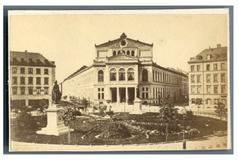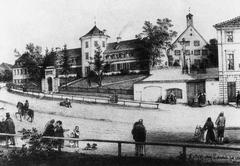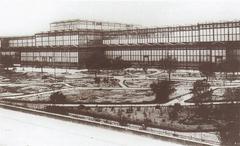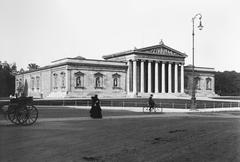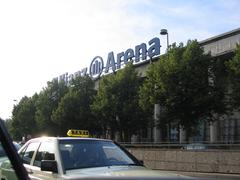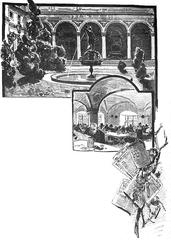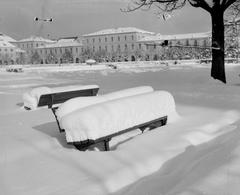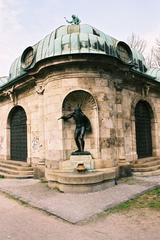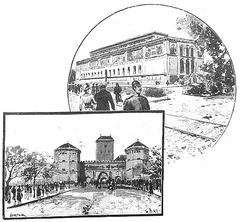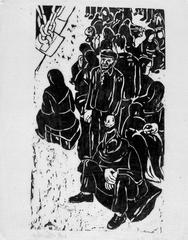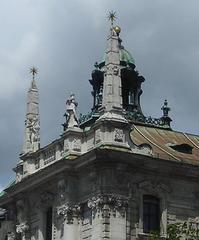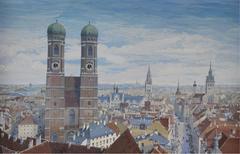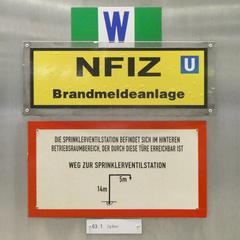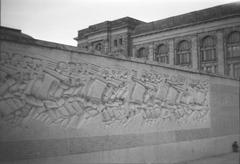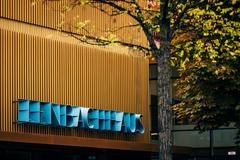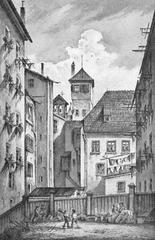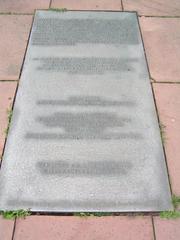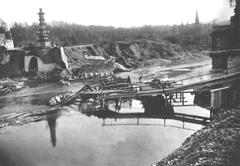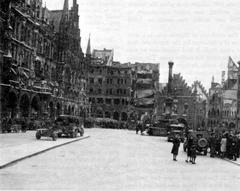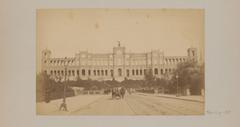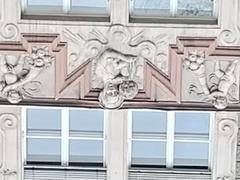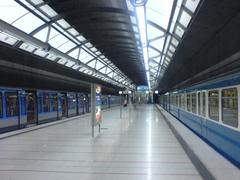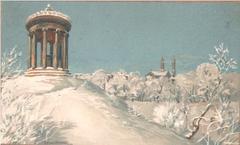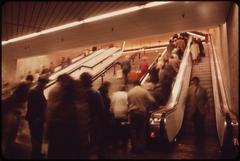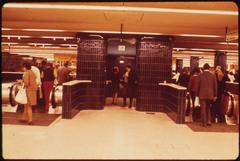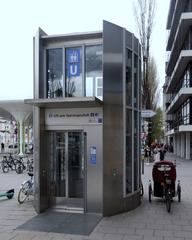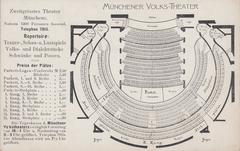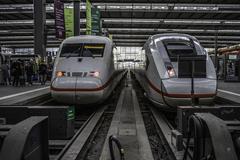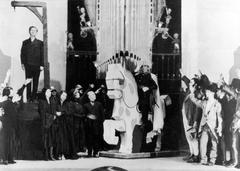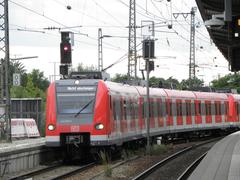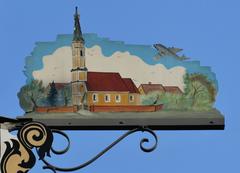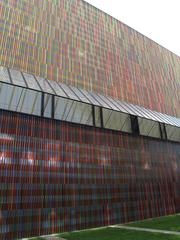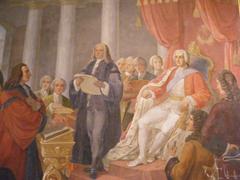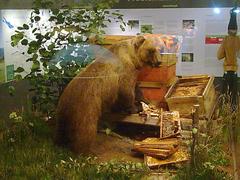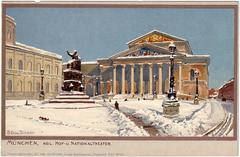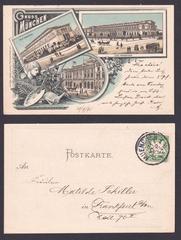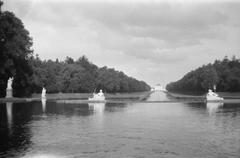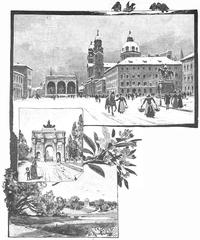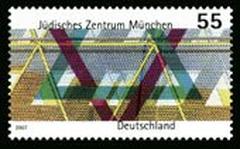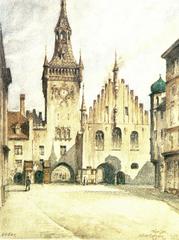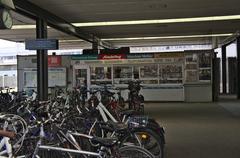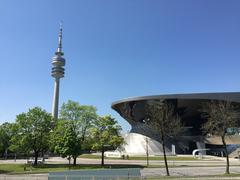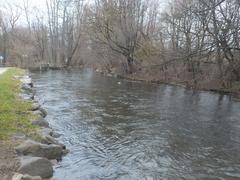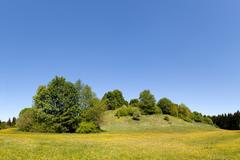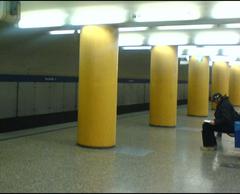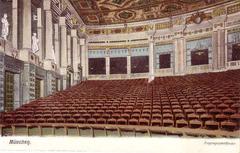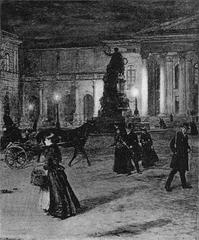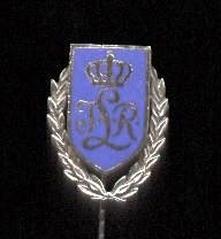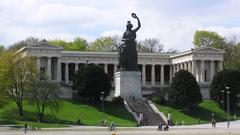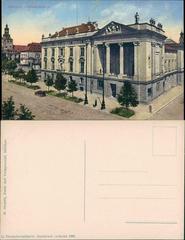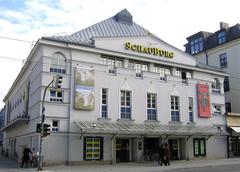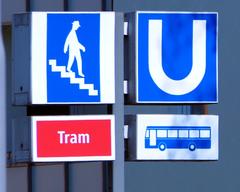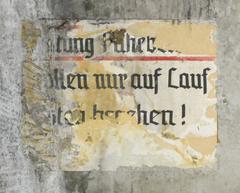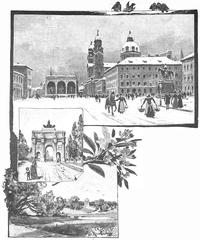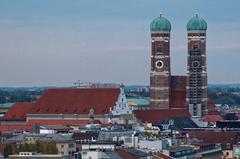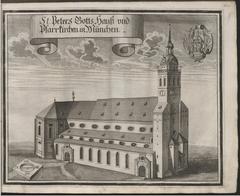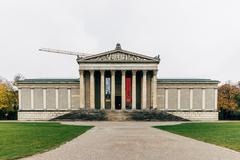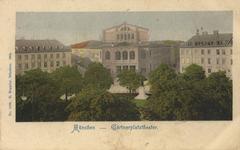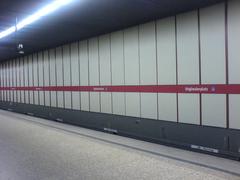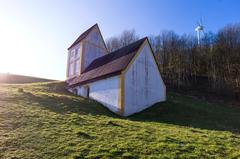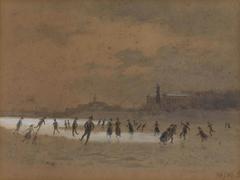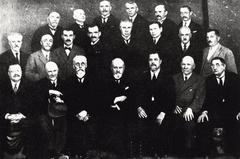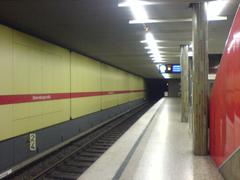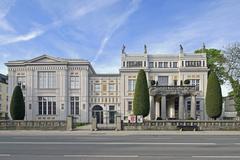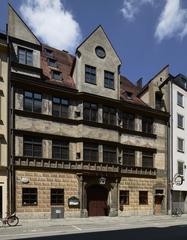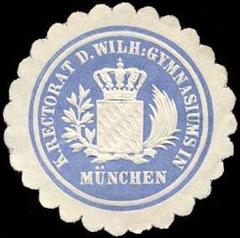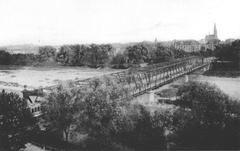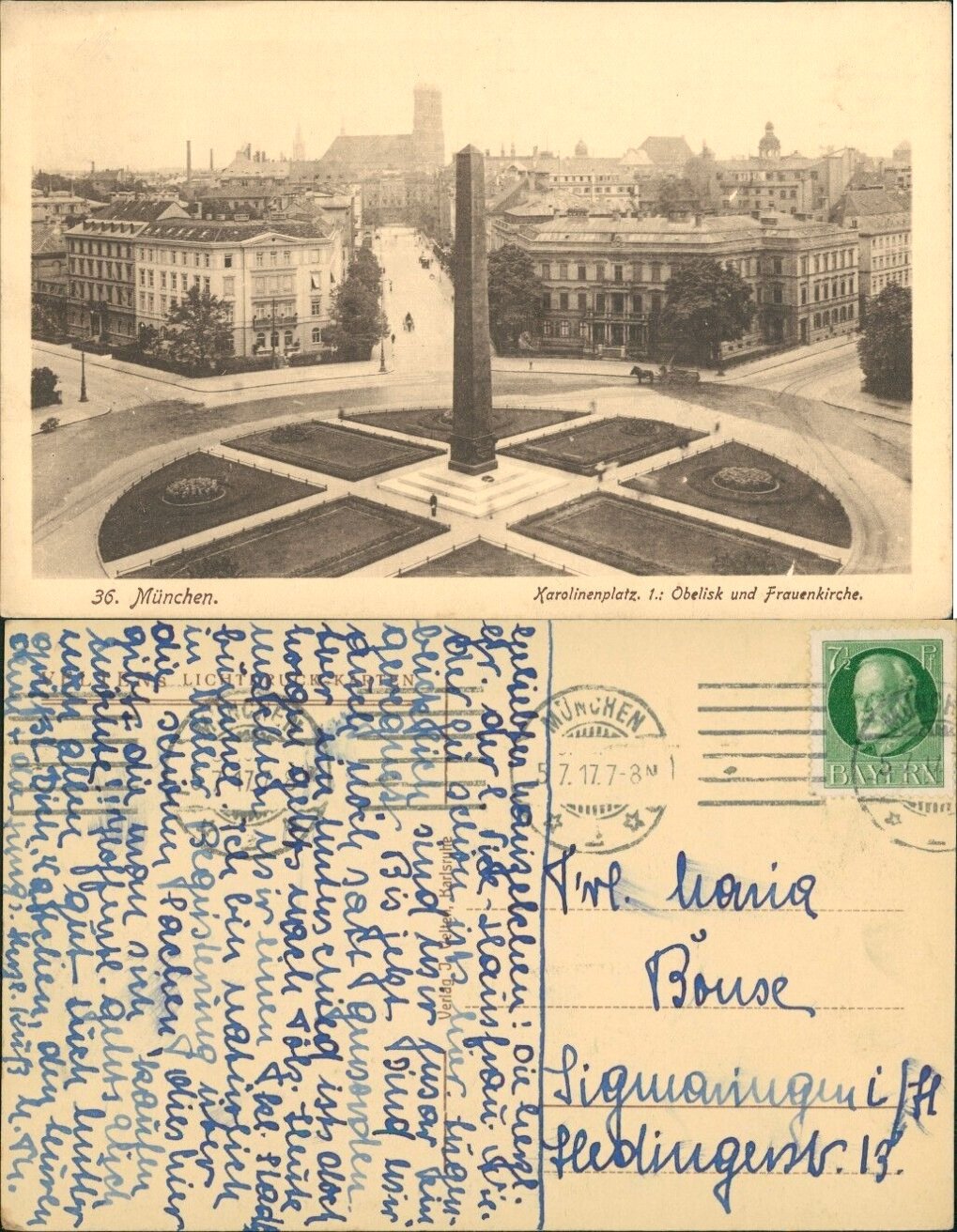
BBV Landsiedlung Visiting Hours, Tickets, and Historical Significance in Munich
Date: 31/07/2024
Introduction
Welcome to a comprehensive guide to visiting BBV Landsiedlung in Munich, Germany. Nestled in the heart of Bavaria, BBV Landsiedlung GmbH is a non-profit settlement company that has played a pivotal role in the region’s agricultural and rural development since its foundation in 1917. Initially established as Bayerische Landessiedlung GmbH, it was formed with the participation of the Bavarian state and 251 other individuals and institutions to improve agricultural structures and economic power in rural areas (Wikipedia). Over the years, the company has evolved, particularly after the Bavarian state divested its majority stake in 2006, leading to the privatization and rebranding of the organization as BBV Landsiedlung GmbH (Wikipedia). Today, it plays a crucial role in various sectors, including agricultural investment promotion, construction planning, and renewable energy projects. This guide will delve into BBV Landsiedlung’s rich history, provide practical visitor tips, and explore the cultural and historical context of Munich. Whether you’re a history buff, an architecture enthusiast, or simply looking to explore the agricultural backbone of Bavaria, this guide will ensure you have all the information you need for an enriching visit.
Table of Contents
- Introduction
- History of BBV Landsiedlung, Munich, Germany
- Visitor Information
- Key Historical Events
- Notable Places and Landmarks in Munich
- Munich’s Historical Context
- Visitor Tips for Exploring Munich
- Historical Sites in Munich
- FAQ
- Conclusion
History of BBV Landsiedlung, Munich, Germany
Origins and Early Development
BBV Landsiedlung GmbH, a non-profit settlement company and service provider of the Bavarian Farmers’ Association, has a rich history dating back to its foundation in 1917. Initially established as Bayerische Landessiedlung GmbH, it was created with the participation of the Bavarian state and 251 other individuals and institutions (Wikipedia). The primary goal was to improve agricultural structures and strengthen the economic power of rural areas in Bavaria.
Transition and Privatization
In 2006, as part of Bavaria’s privatization efforts, the Bavarian state divested its majority stake in Bayerische Landessiedlung GmbH. Consequently, the Bavarian Farmers’ Association took over one of the three main business areas of the BLS, leading to the establishment of BBV Landsiedlung GmbH on August 1, 2006 (Wikipedia). This transition allowed the association to expand its service offerings, particularly in the areas of business development and structural improvement for its members.
Modern Role and Functions
Today, BBV Landsiedlung GmbH plays a crucial role in various sectors, including agricultural investment promotion, construction planning, and the mediation of agricultural properties and estates. The company is also involved in renewable energy projects such as biogas, photovoltaics, and wind power. Additionally, it provides services to municipalities and communities, focusing on demographics, integrated rural development, energy concepts and plans, and village renewal (Wikipedia).
Visitor Information
Visiting Hours and Tickets
BBV Landsiedlung GmbH is open to visitors by appointment. For specific visiting hours and ticket information, it is recommended to contact the company directly through their official website or customer service.
Guided Tours
Guided tours are available upon request, offering an in-depth look into the company’s history, current projects, and contributions to rural development and renewable energy. To book a guided tour, visit the BBV Landsiedlung GmbH website or call their office.
Accessibility
The company premises are accessible to visitors with disabilities. For specific accessibility arrangements, please contact the BBV Landsiedlung GmbH office in advance to ensure a comfortable visit.
Key Historical Events
- 1917: Foundation of Bayerische Landessiedlung GmbH.
- 2006: Privatization and establishment of BBV Landsiedlung GmbH.
- Ongoing: Expansion into renewable energy and community services.
Notable Places and Landmarks in Munich
BBV Landsiedlung GmbH is located in Munich, a city with a rich historical background. Notable places in the area include the Alte Pinakothek, Munich Documentation Centre for the History of National Socialism, and the University of Music and Theatre Munich (Mapcarta). These landmarks provide a cultural and historical context to the company’s location.
Munich’s Historical Context
Munich, the capital of Bavaria, has a history that spans over 850 years. Founded by Henry the Lion, Duke of Bavaria and Saxony, in the 12th century, Munich became the capital of Bavaria in 1504. By the mid-19th century, it had grown into a major city with an archbishop, a university, an opera house, and royal palaces (Europe for Visitors).
Munich in the 20th Century
The 20th century saw Munich gain notoriety as the birthplace of the Nazi party. The city was regarded as the “capital of the movement” from 1920 until the collapse of the Third Reich. The Feldherrnhalle, a Bavarian war memorial, became associated with the Nazi era (Europe for Visitors).
Modern Munich
Today, Munich is a prosperous city with a population of 1.35 million in a metropolitan area of six million. It is one of Germany’s most affluent cities and attracts numerous English-speaking visitors, making it a popular tourist destination (Europe for Visitors).
Visitor Tips for Exploring Munich
Transportation
Munich offers various transportation options, including the efficient U-Bahn system. For a comprehensive tour, consider booking a Hop On Hop Off Bus Tour, which covers 16 stops around the city (My Germany Vacation).
Cultural Events
Munich hosts numerous cultural events throughout the year. The Bored in Munich events calendar is a great resource for finding local events (Happy to Wander).
Green Spaces
Munich is known for its lush green spaces. The English Garden is a must-visit, but there are many other beautiful parks scattered around the city (Happy to Wander).
Museums
Many of Munich’s top museums offer 1 euro entry on Sundays, making it an affordable way to explore the city’s cultural heritage. Maxvorstadt is a neighborhood with several excellent museums, including the Pinakothek Moderne and the NS Documentation Center (Happy to Wander).
Historical Sites in Munich
Marienplatz
The central square of Munich, known for its historical buildings and vibrant atmosphere (History Curator).
Bavarian National Museum
Offers insights into the history of Bavaria and its people (History Curator).
Munich Documentation Center
Focuses on the rise of fascism and the Nazi party in Germany, with a particular emphasis on Munich’s role (History Curator).
FAQ
What are the visiting hours for BBV Landsiedlung GmbH?
Visiting hours are available by appointment. Contact BBV Landsiedlung GmbH directly for more information.
Are there guided tours available?
Yes, guided tours are available upon request. Visit the official website or call the office to book a tour.
Is BBV Landsiedlung GmbH accessible to visitors with disabilities?
Yes, the premises are accessible. Contact the office in advance for specific arrangements.
Conclusion
BBV Landsiedlung GmbH’s history is deeply intertwined with the broader historical and cultural context of Munich. From its origins in the early 20th century to its modern role in agricultural development and renewable energy, the company has played a significant part in shaping rural Bavaria. Visitors to Munich can explore this rich history through the city’s numerous historical sites, museums, and cultural events, making for a memorable and educational experience. For more information, visit the official BBV Landsiedlung GmbH website or follow their social media channels (BBV Landsiedlung).
References
- Wikipedia. (n.d.). BBV Landsiedlung. Wikipedia
- Mapcarta. (n.d.). BBV Landsiedlung GmbH. Mapcarta
- Europe for Visitors. (n.d.). Munich History. Europe for Visitors
- My Germany Vacation. (n.d.). Best Things to Do in Munich in 2 Days. My Germany Vacation
- Happy to Wander. (n.d.). Munich Travel Tips. Happy to Wander
- History Curator. (n.d.). Munich Historic Sites Visitors Guide. History Curator
- BBV Landsiedlung. (n.d.). BBV Landsiedlung
- Munich Travel Guide 2024. (2024). Munich Travel Guide 2024
